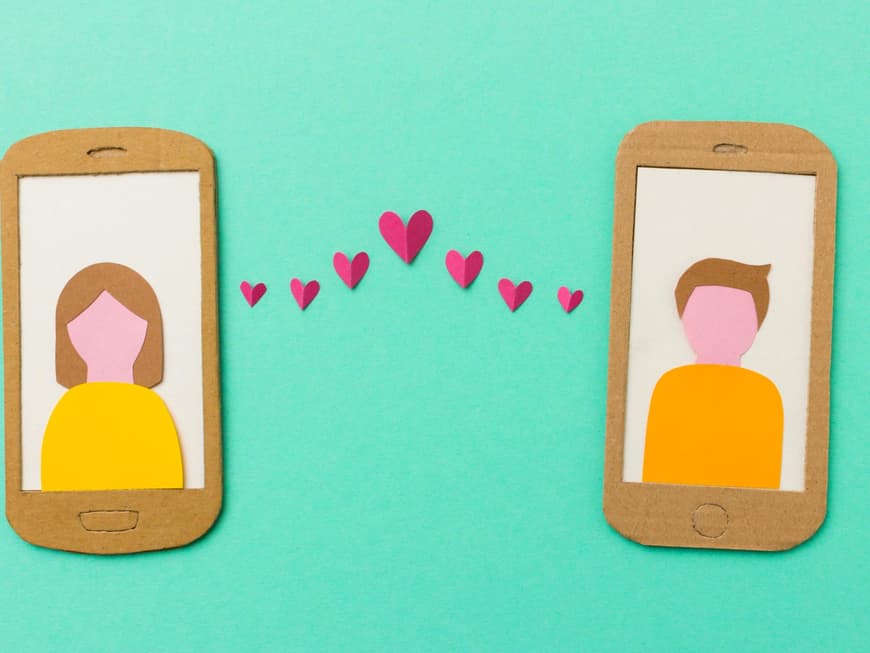
These are common methods used to commit data theft:
Info for advertising giants
Many app providers' privacy policies state that they reserve the right to pass on data to third parties. And who are these "third parties"? Facebook, for example, the network that collects as much data as possible about users. Sometimes the third parties are also advertising networks such as Flurry or Mopub. They then ensure that you receive targeted and personalized advertising.
Chats - in private?
You have only published the most necessary data on your dating profile and have been really careful - and then you go into the chats. They are in private. Are they? No. A French journalist went to court to get access to her Tinder files. She was given an 800-page document in which every chat was documented in detail, which apparently constitutes data theft.
Data sent abroad
For many, it is unclear in which country the data ends up. The problem is that data protection is often much more lax in other countries. This opens the door to cyber criminals. In its guidelines, Tinder refers to "servers in the USA and countries around the world". Great! It doesn't get much less clear when it comes to data theft.
So many fake profiles
They keep popping up and are often difficult to see through. Some portals pay writers to convince others to pay for their services. And then you're caught in the subscription trap. There are also so-called love scammers who pose as people who want to date. They gradually build up trust, collect our data and really only want our money.
How to protect yourself
Love scammers and marriage scammers in particular can be detected with simple tests. If you are registered on a portal and have met someone in a chat, arrange to meet them. If he keeps making excuses, such as suddenly being sent abroad for work, keep your hands off him.
The most popular dating apps
Stiftung Warentest took a close look at a total of 44 free dating sites in terms of data sharing. Here are the four passable portals, plus the results of the most popular brokers.
These are acceptable
Bildkontakte: The most secure provider. It does not send any unnecessary data to third parties and provides comprehensive information about everything in its privacy policy. Exemplary!
eDarling: First there is the personality test, then there are suggestions. The iOS version sends the mobile provider to Facebook, Android nothing at all. That's acceptable.
Neu.de: Is one of the almost secure ones. No data is passed on to third parties from Android phones, the iOS app sends the mobile provider to Facebook.
Lovescout24: Like Tinder and Neu.de, this app belongs to the Us provider IAC. Data protection and data transfer are almost identical to neu.de and are also still okay.
You need to take a very close look at these apps
C-Date: This is primarily about erotic contacts. The device ID is sent to third parties. Customer profiles are also transferred to other media.
Lovoo: Offers a live radar to meet others nearby. Grants itself the right to combine user data with third-party data. Very insecure.
Lesarion: The portal for homosexual women. Even when you enter your e-mail address, it is transmitted to third parties - without you clicking on the send button.
Jaumo: Flirting, chatting, dating - very simple. The provider reserves the right to pass on your location for personalized advertising.
Tinder: Contacts in a flash. You can register using your cell phone number or Facebook. The network also receives the details of the mobile phone provider.
Once: Only up to four partners are suggested per day. Sends the mobile provider and usage statistics to Facebook. For Android "only" device identification.
Badoo: For dating and new friendships. Here, detailed information is sent to Microsoft and data protection guidelines are changed without notification.
Zoosk: Makes partner suggestions based on user behavior. For example, the location is forwarded to the advertising company Mopub. And with iOs also the age.
Bumble: The women always make the first move here. The privacy policy is vague, such as: "Further information may be collected".
Kiss-No-Frog: Sounds so sweet. The live dating portal supposedly offers maximum data protection. But it remains unclear what is stored when you log in to Facebook.
Happn: This lets you find people you've met in real life. Device information is sent to Facebook and Microsoft. And everyone knows the user's location.
Parship: The app is free, but you are only a basic member. The provider reserves the right to send the IP address to Facebook for advertising purposes.
Twoo: A dating app based in Belgium. The privacy policy states that the processing of data is "adequate and proportionate". Excuse me?






